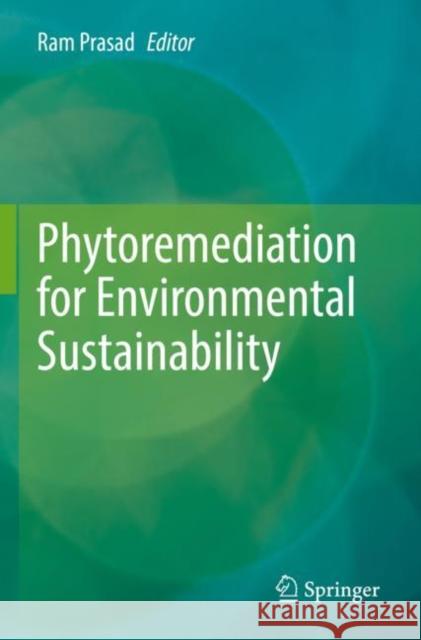Phytoremediation for Environmental Sustainability » książka
Phytoremediation for Environmental Sustainability
ISBN-13: 9789811656231 / Angielski / Miękka / 2023 / 543 str.
This edited book details the plant-assisted remediation methods, which involves the interaction of plant roots with associated rhizospheric microorganisms for the remediation of soil and water contaminated with high levels of heavy metals, pesticides, radionuclides, agricultural by-products, municipal wastes, industrial solvents, petroleum hydrocarbons, organic compounds, and various other contaminants. Each chapter highlights and compares the beneficial and economical alternatives of phytoremediation to currently practiced soil, water, and air removal. This book covers state-of-the-art approaches in phytoremediation contributed by leading and eminent scientists from across the world. Phytoremediation approaches for environmental sustainability dealing the readers with a cutting-edge of multidisciplinary understanding in the principal and practical approaches of phytoremediation from laboratory research to field application. This book is of interest to researchers, teachers, environmental scientists, environmental engineers, environmentalists, and policy makers. Also, the book serves as additional reading material for undergraduate and graduate students of environmental microbiology, biotechnology, eco-toxicology, environmental remediation, waste management, and environmental sciences as well as the general audience.
This edited book details the plant-assisted remediation methods, which involves the interaction of plant roots with associated rhizospheric microorganisms for the remediation of soil and water contaminated with high levels of heavy metals, pesticides, radionuclides, agricultural by-products, municipal wastes, industrial solvents, petroleum hydrocarbons, organic compounds, and various other contaminants. Each chapter highlights and compares the beneficial and economical alternatives of phytoremediation to currently practiced soil, water, and air removal. This book covers state-of-the-art approaches in phytoremediation contributed by leading and eminent scientists from across the world. Phytoremediation approaches for environmental sustainability dealing the readers with a cutting-edge of multidisciplinary understanding in the principal and practical approaches of phytoremediation from laboratory research to field application. This book is of interest to researchers, teachers, environmental scientists, environmental engineers, environmentalists, and policy makers. Also, the book serves as additional reading material for undergraduate and graduate students of environmental microbiology, biotechnology, eco-toxicology, environmental remediation, waste management, and environmental sciences as well as the general audience.











